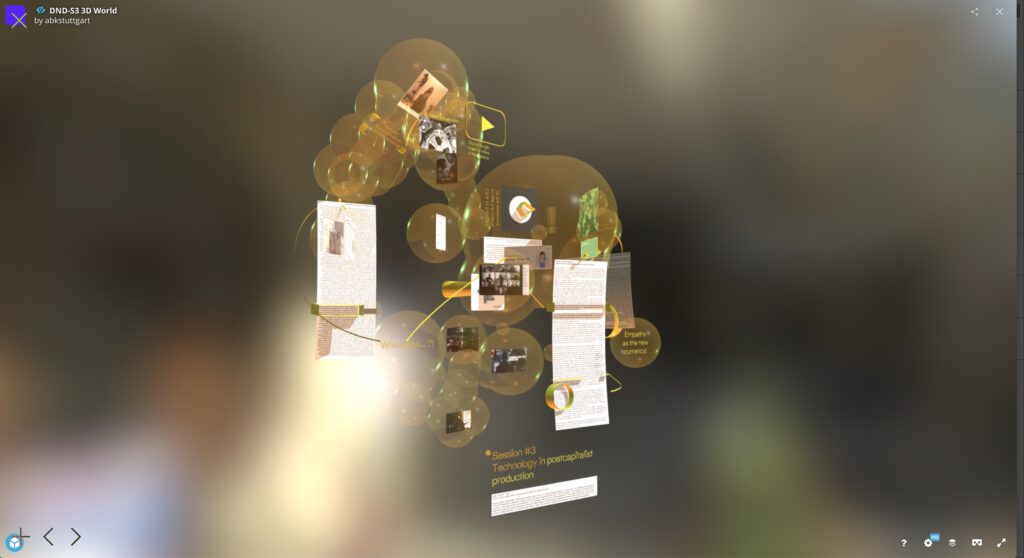Dare’n’Do 5
SS 20
Science (Fiction) & Intuition
Dare’n’Do – Science (Fiction) and Intuition was dedicated to the experimental and open-ended study of Science and Fiction from a discursive and narrative perspective.
In two successive phases, external impulses from rapidly developing scientific fields such as medicine, robotics and biochemistry were treated discursively, narratively and artistically. We devoted ourselves to the genre of science fiction in literature, film, radio play, video game and art, looked at further speculative approaches within and outside the design discipline and dealt with philosophical schools of thought such as transhumanism.
All Session:
I SCIENCE
Session 1: Human & Machine
Session 2: Becoming alive!
Session 3: Technology in postcapitalist production
II FICTION
Session 4: The narrative power of Sci-Fi
Session 5: The creative power of Sci-Fi
All 5 sessions started off with a short introduction by the guest and a pecha kucha presentation done by two participants. But mostly the 2-3 hours were filled with intense discussions, raising questions going far beyond the boarders of the own discipline enabling a productive exchange of perspectives and views. To get a better understanding of what was going on a 3D Space for each session was created.
Guests:
Ludwig Rensch (Robotics),
Dr. Kerstin Göpfrich (MPI Heidelberg, künstliche Zellforschung),
Hüseyin Sahin (M.A. Europawissenschaften),
Marcel Mayr (Philosophy & Transhumanism)
Estevan Mykhail Guzman (Griffith Observatory, LA, USA)
